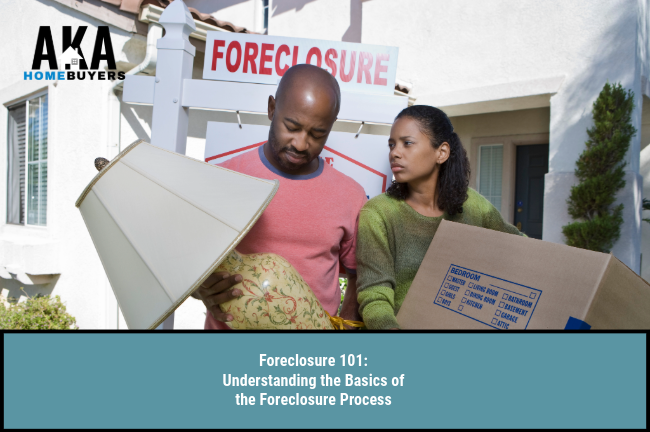Foreclosure 101: Understanding the Basics of the Foreclosure Process

Foreclosure can be an intimidating term, particularly when it pertains to something as personal and important as your home. The mere thought of it might evoke a sense of dread or uncertainty. However, there’s no need for alarm! I’m here to demystify the concept and elucidate it in a straightforward manner. Let’s delve into the intricacies of foreclosure, explore the processes that lead to it, and discuss the various strategies you can employ to navigate through or even avert such a situation.
What is Foreclosure?
Imagine that you have purchased a home by securing a loan from a financial institution, such as a bank. In return, you are obligated to repay this loan in regular installments over a specified period. This arrangement is commonly referred to as a mortgage. However, life can be unpredictable, and there might be circumstances where you find yourself unable to meet these payment obligations. This is where the concept of foreclosure enters the picture.
Foreclosure occurs when the bank or lending institution reclaims possession of your property due to a failure to keep up with the mortgage payments. This is not an instantaneous action but rather a legal procedure that is initiated after several missed payments, giving the lender the right to take back the property to recover the unpaid loan amount. It’s a process that can unfold for anyone who finds themselves in a financial bind, unable to consistently pay their mortgage dues.
How Does Foreclosure Start?
Foreclosure doesn’t happen overnight. It starts after you miss a few mortgage payments. The bank will first send you a notice saying you missed payments. This is a warning. If you can’t catch up on these payments, the bank may start the foreclosure process.
Steps of the Foreclosure Process
- Missed Payments and Notices: As mentioned, it starts with missed payments and warnings.
- Public Notice: After a few months of missed payments, the lender can make a public notice. This tells everyone your house might be foreclosed.
- Pre-foreclosure: This period gives you a chance to work things out. You can either pay what you owe or sell the house and pay off the mortgage.
- Auction: If you can’t fix things in pre-foreclosure, your house will be sold in an auction.
- Post-foreclosure: If the house doesn’t sell at auction, the bank takes ownership. It’s now a bank-owned or real estate owned (REO) property.
What Can You Do?
If you’re facing the challenge of foreclosure, it’s important to know that there are several options available to help you navigate this difficult situation. The first step is often to communicate with your lender, as they may be willing to work out a more manageable payment plan or offer temporary relief. Additionally, there are government assistance programs designed to support homeowners in distress, which can offer solutions such as loan modification, extending the loan period, or providing direct payment assistance.
Another strategy to consider is selling your home before it goes into foreclosure, allowing you to pay off the mortgage and avoid the foreclosure process. If these options aren’t viable, declaring bankruptcy might be a last resort, but be mindful of its long-term impact on your credit score. Consulting with a legal expert can also provide valuable guidance, helping you understand your rights and explore all potential solutions to protect your financial wellbeing.
Tips to Avoid Foreclosure
- Budget Carefully: Monitor your expenses diligently and ensure that you allocate sufficient funds to cover your mortgage payments, thus avoiding financial pitfalls that could lead to difficulties in fulfilling your loan obligations.
- Build a Savings Buffer: Aim to accumulate a financial cushion to safeguard against unexpected events or economic downturns, which can provide a lifeline during challenging periods.
- Understand Your Mortgage: Familiarize yourself with the specifics of your mortgage type and the associated payment schedule to ensure that you are fully aware of your financial commitments and can plan accordingly.
- Watch for Warning Signs: Be vigilant about your financial health; if you notice that meeting payments is becoming a struggle, recognize the issue promptly and seek solutions before it escalates into a more serious problem.
Conclusion
Foreclosure can be a challenging process, but understanding it is the first step in handling it. If you find yourself in this situation, remember you’re not alone. There are ways to manage and even avoid foreclosure. Stay informed, explore your options, and don’t be afraid to ask for help.
Remember, it’s always better to act sooner than later. Keep an eye on your finances, and if you think you might start missing payments, start exploring your options right away. By taking control of the situation, you can find the best way forward for you and your home.
Want a Fast, Fair, No-Hassle Offer on your House?
Need to sell quickly or just don’t want the cost and delays of putting your house on the market and having strangers in and out of your house, possibly for months? We can help!
